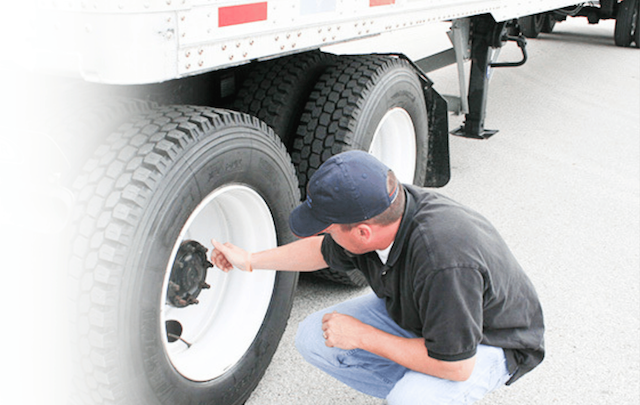Everything You Need to Know About Pre-Trip Inspections
As a truck driver, pre-trip inspections are an important part of your routine to ensure the safety of yourself and others on the road. A pre-trip inspection is a thorough check of a vehicle’s components, systems, and parts to ensure they are in good working condition. It is important to understand the importance of pre-trip inspections before hitting the road.

Importance of Pre-Trip Inspections
Ensuring Safety on the Road
Pre-trip inspections are crucial in ensuring the safety of everyone on the road, especially for truck drivers who operate heavy vehicles that can cause severe damage in case of an accident. By checking the vehicle’s tires, brakes, suspension, and other important components, you can prevent accidents from happening. As a truck driver, it is important to make sure that the load is properly secured and weight is evenly distributed to avoid accidents and rollovers.
Saving Time and Money
Pre-trip inspections can also save you time and money in the long run. By catching any issues before hitting the road, you can avoid breakdowns or accidents that can cause costly repairs or replacements. As a truck driver, time is money, and a breakdown or an accident can delay your delivery and cost you valuable time and money. By conducting regular pre-trip inspections, you can avoid these situations and keep your truck in top condition.
Complying with Regulations
Pre-trip inspections are also important for complying with regulations set by the Federal Motor Carrier Safety Administration (FMCSA). The FMCSA requires all commercial drivers to conduct pre-trip inspections to ensure the safety of the vehicle and its cargo. By complying with these regulations, you can avoid fines and penalties and ensure that your vehicle is safe to operate on the road.
What to Check During Pre-Trip Inspections
Tires, Wheels, and Rims
As a truck driver, you must pay close attention to your vehicle’s tires, wheels, and rims. Check the tread depth and pressure of each tire, and make sure there are no cracks or bulges. Check the lug nuts and rims for damage or cracks. A blowout or a flat tire can cause a serious accident, so it’s important to ensure that your tires are in good condition before hitting the road.
Brakes and Suspension Systems
The braking system and suspension system are critical components of a truck that require careful inspection. Check the brake pads, brake shoes, drums, and rotors, and make sure they are in good condition. Check the suspension system for any leaks or damage, and make sure the shocks and struts are in good condition. Faulty brakes or suspension can cause serious accidents, so it’s important to ensure that they are working properly.
Lights and Electrical Systems
The lights and electrical systems of a truck are essential for safe operation. Check all the lights, including the headlights, taillights, brake lights, and turn signals, to ensure they are working properly. Check the battery and charging system to make sure they are functioning well. A faulty electrical system can cause a breakdown or an accident, so it’s important to ensure that they are working properly.
Tips for Conducting Pre-Trip Inspections
Create a Checklist and Stick to It
As a truck driver, it’s important to have a pre-trip inspection checklist to ensure that you don’t miss anything during the inspection. Create a checklist that includes all the components you need to inspect, and stick to it every time you conduct an inspection. This will ensure that you don’t miss anything and that your vehicle is in top condition.
Schedule Regular Maintenance Checks
Regular maintenance checks are essential for keeping your truck in top condition. Schedule maintenance checks with a trusted mechanic to identify anypotential issues and address them before they become a bigger problem. This will help you avoid costly repairs and keep your vehicle in good condition.
Train Drivers on Proper Inspection Procedures
If you are a trucking company owner, it’s important to train your drivers on proper inspection procedures. This will ensure that all your drivers are conducting pre-trip inspections properly and consistently. Make sure that your drivers understand the importance of pre-trip inspections and the potential consequences of not conducting them properly.
Common Mistakes to Avoid During Pre-Trip Inspections
Rushing Through the Inspection
One of the most common mistakes during pre-trip inspections is rushing through the process. It’s important to take your time and conduct a thorough inspection of all the components. Rushing through the inspection can cause you to miss important issues that could lead to accidents or breakdowns.
Neglecting to Check Certain Components
Another common mistake is neglecting to check certain components during the inspection. It’s important to check all the components, including those that may seem less important, such as mirrors and windshield wipers. Neglecting to check certain components can lead to bigger problems down the road.
Failing to Document Inspection Results
Failing to document inspection results is another common mistake. It’s important to document the results of the inspection, including any issues that were found and any repairs that were made. This documentation can help you keep track of the condition of your vehicle and address any recurring issues.
Frequently Asked Questions About Pre-Trip Inspections
Q: What is a pre-trip inspection?
A: A pre-trip inspection is a thorough check of a vehicle’s components, systems, and parts to ensure they are in good working condition.
Q: How long does a pre-trip inspection take?
A: A pre-trip inspection can take anywhere from 15 to 45 minutes, depending on the size and complexity of the vehicle.
Q: Who is responsible for conducting pre-trip inspections?
A: The driver of the vehicle is responsible for conducting pre-trip inspections.
Q: What are the consequences of failing a pre-trip inspection?
A: Failing a pre-trip inspection can result in fines, penalties, and even the suspension of your commercial driver’s license.
Q: How often should pre-trip inspections be performed?
A: Pre-trip inspections should be performed before each trip and at least once every 24 hours for trucks that are in continuous use.




